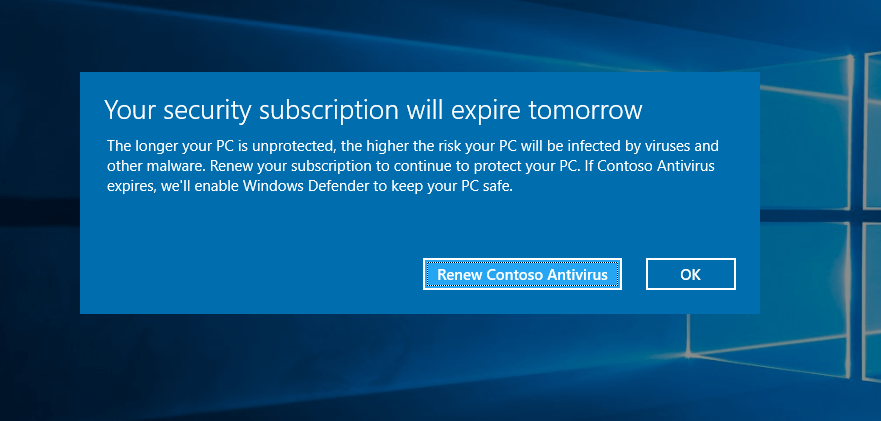
Earlier this month, Russian antivirus giant Kaspersky field an antitrust complaint with the European Commission against Microsoft. It followed a similar complaint filed with Russian watchdogs last year, which alleges the Defender security software bundled with Windows 10 tramples over third-party antivirus products. Now, the Redmond firm has admitted that the OS does disable these products, but only for a short amount of time.
Kaspersky (and others) say Microsoft is abusing its market position “to fiercely promote its own – inferior – security software at the expense of users’ previously self-chosen security solution.”
In a lengthy new blog post, Rob Lefferts, director of security in the Windows and Devices group, writes that the Windows 10 Creators Update temporarily disabled third-party antivirus software: “For the small number of applications that still needed updating, we built a feature just for AV apps that would prompt the customer to install a new version of their AV app right after the update completed. To do this, we first temporarily disabled some parts of the AV software when the update began.”
Lefferts also claims Defender does “not run periodic scans without explicit customer action or provide protection until the chosen third-party AV solution is no longer protecting the Windows 10 device due to expiration.”
While it doesn’t specifically mention Kaspersky or the complaints, the blog addresses some of the Russian firm’s issues. It states that Microsoft works with external antivirus partners to ensure compatibility, but Kaspersky says its biggest problem with Microsoft is the fact it has cut the amount of time given to developers for compatibility testing from two months to six days. If Windows 10 does detect incompatible security software, the OS will shut it down and run Defender instead.
Lefferts also argues against Kaspersky’s claim that Defender is an inferior product. He points to recent real-world testing that shows Windows’ software scoring 99.5 percent detection rates, putting it just under the likes of Kaspersky, Avast, AVG, and Trend Micro.
https://www.techspot.com/news/69825-microsoft-admits-windows-10-does-temporarily-disable-third.html